Get Inspired
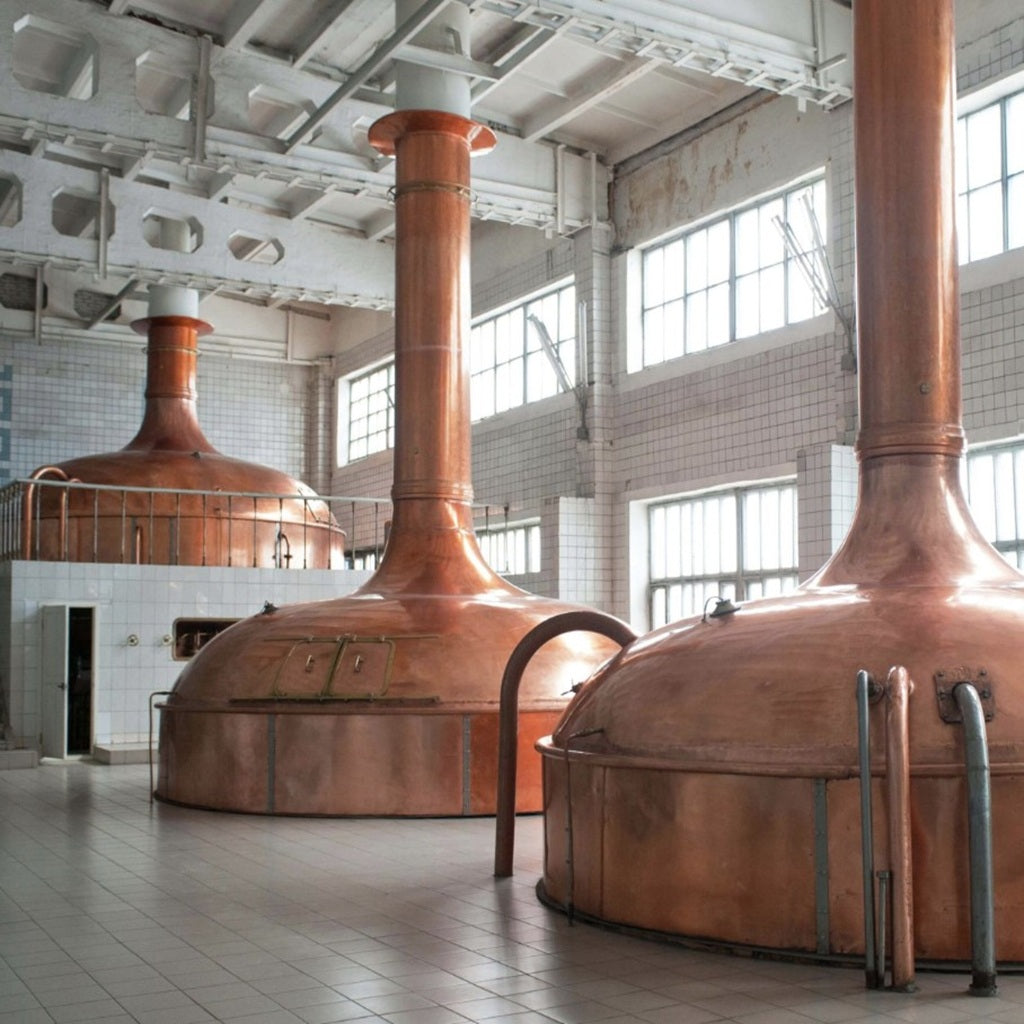
#1 Choice for Grout in Commercial Kitchen Applications - SPECTRALOCK 2000 IG
Why SPECTRALOCK® 2000 IG Grout is the #1 Choice for Commercial Kitchen Applications
When it comes to commercial kitchens, performance under pressure isn’t just a demand for chefs — it’s also a non-negotiable requirement for building materials. Flooring and wall finishes in these environments face constant exposure to moisture, harsh cleaning chemicals, grease, thermal shock, and heavy foot and cart traffic. This is where LATICRETE® SPECTRALOCK® 2000 IG stands above the rest — and why it's considered the gold standard in epoxy grouts for commercial kitchen applications.
1. Unmatched Chemical Resistance
Commercial kitchens are regularly cleaned with aggressive sanitizers, degreasers, and other caustic agents to meet health and safety codes. SPECTRALOCK 2000 IG offers industrial-grade chemical resistance, far exceeding that of cement-based or even standard epoxy grouts. It is engineered to resist food acids, alkalis, and harsh detergents commonly found in HACCP-compliant facilities. This means your grout lines won’t degrade, stain, or harbor bacteria over time.
2. 100% Solids Epoxy for Superior Durability
Unlike traditional or even hybrid grouts, SPECTRALOCK 2000 IG is a 100% solids epoxy grout. It contains no water or volatile components, ensuring maximum density and compressive strength. It is designed to hold up under extreme thermal and physical stress — such as the steam cleaning, hot oil spills, and constant rolling loads found in a busy kitchen.
3. Exceptional Hygiene & Stain Resistance
Because it's non-porous and impervious, SPECTRALOCK 2000 IG helps prevent the growth of mold, mildew, and bacteria — a critical factor in food preparation areas. It also resists stains from wine, sauces, grease, and other common kitchen contaminants, which keeps floors and walls looking cleaner, longer.
4. Thermal Shock Resistant
One of the leading causes of grout failure in commercial kitchens is thermal shock — the rapid expansion and contraction of materials when exposed to extreme temperature changes. SPECTRALOCK 2000 IG is formulated to withstand thermal shock, making it ideal for areas where hot liquids or steam are discharged onto cold floors or walls.
5. NSF Certified & HACCP Compliant
Health and safety compliance is not optional in a commercial kitchen. SPECTRALOCK 2000 IG is NSF/ANSI 51 certified, which means it’s safe for use in food zones. It’s also suitable for HACCP environments, where preventing contamination is a top priority.
6. Broad Compatibility & Aesthetic Options
SPECTRALOCK 2000 IG is compatible with a wide range of LATICRETE mortars and waterproofing membranes, making it easy to integrate into a complete tile system. It is available in multiple colors, and can be combined with Dazzle™ components for decorative or branding-specific installations. For commercial kitchens, this means functionality and aesthetics don’t have to be mutually exclusive.
7. Proven Performance in Demanding Environments
Used in high-demand installations such as hospitals, commercial food processing plants, and institutional kitchens, SPECTRALOCK 2000 IG has a track record of long-term success. Installers and facility managers continue to trust this grout to protect their tile installations for years with minimal maintenance.
Final Thoughts
If you're designing or renovating a commercial kitchen, choosing the right grout is critical — and SPECTRALOCK® 2000 IG should be your first choice. Its combination of chemical resistance, durability, hygiene, and proven performance makes it an investment in the longevity and safety of your facility.
Looking to purchase SPECTRALOCK 2000 IG? Visit Flooring Market for availability, pricing, and product support. Need a quote for a large project reach out to our Pro Services at ProServices@FlooringMarket.com for a custom quote and lead time.
- Billy Peska
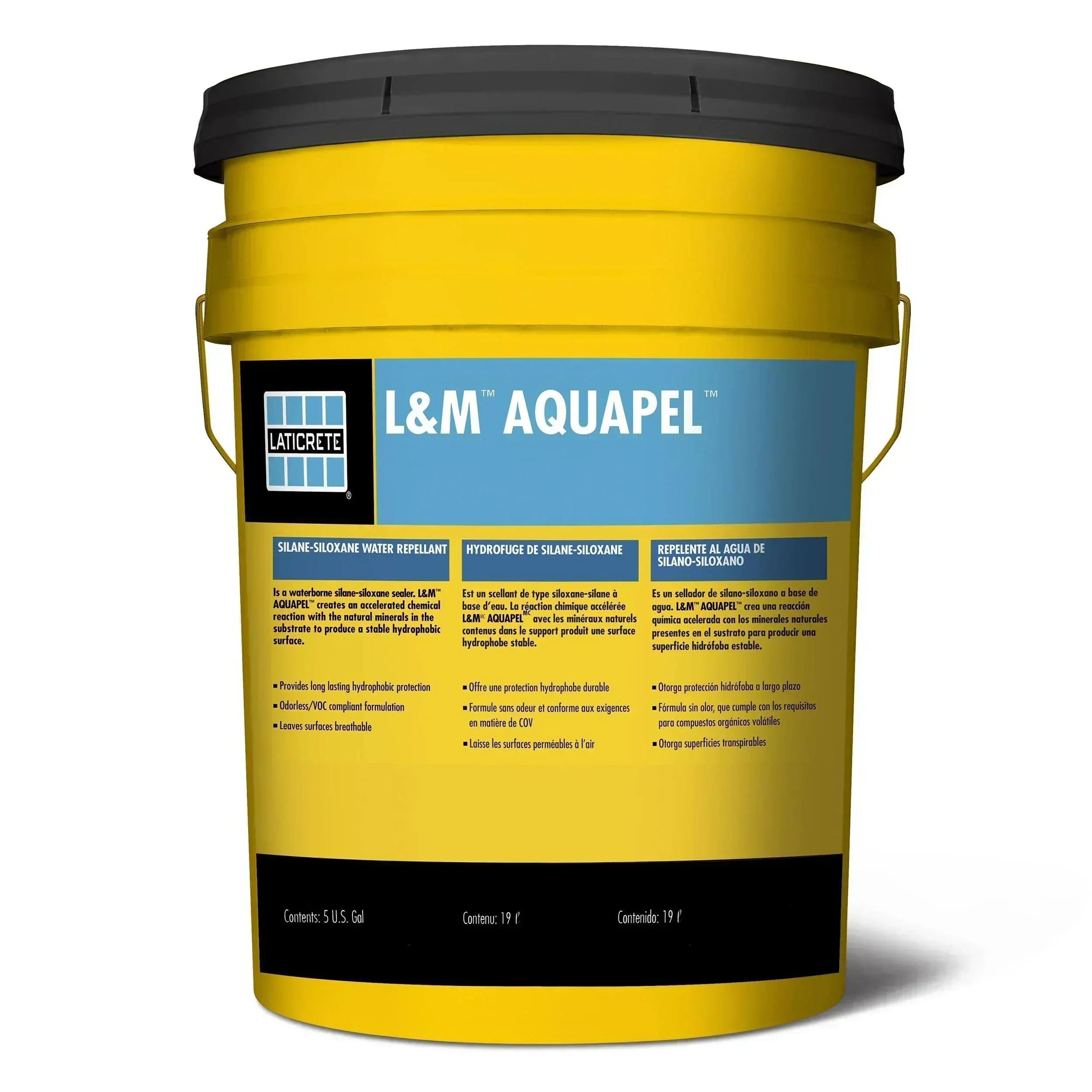
From the Pro Desk; Protect your concrete with L&M Aquapel
Protect Your Concrete with Laticrete's L&M Aquapel Concrete Sealer
Concrete surfaces are a significant investment, whether it be a driveway, patio, or foundation. Over time, they can fall victim to harsh weather, moisture, and salt damage, leading to costly repairs. To protect these essential structures, utilizing an effective sealer is crucial. One of the most advanced solutions available today is the Laticrete L&M Aquapel Concrete Sealer.
What is Aquapel?
Aquapel is a new generation, 100% reactive, waterborne silane-siloxane sealer designed specifically for concrete surfaces. Unlike traditional sealers, which can fail over time, Aquapel penetrates deeply into the concrete and chemically bonds to the substrate. This robust interaction creates a surface that is highly resistant to moisture and salt attacks, ensuring durability and longevity.
Versatile Application for Every Surface
One of Aquapel’s standout features is its versatility. This clear, penetrating sealer is suitable for both horizontal and vertical surfaces, making it ideal for use in a variety of applications—whether it’s for your driveway, sidewalks, walls, or even decorative concrete installations. Additionally, it is effective in both interior and exterior environments and is perfect for above-grade traffic concrete.
Breathable and Non-Toxic
Another key aspect of Laticrete L&M Aquapel is its breathable nature. It allows moisture trapped within the concrete to escape, which is essential for maintaining the integrity of the structure over time. This characteristic not only prolongs the life of your concrete but also prevents the buildup of harmful mold and mildew. Plus, being a waterborne product, it is non-toxic, making it a safer choice for residential and commercial applications alike.
Why Every Driveway Should Have Aquapel
With so many benefits, it’s clear that every driveway in America should be treated with Laticrete L&M Aquapel Concrete Sealer. By investing in this high-quality sealer, homeowners can protect their concrete surfaces from the harsh elements and the damaging effects of freeze-thaw cycles, road salts, and more. The longevity it provides can ultimately save you from costly repairs down the line.
Final Thoughts
In conclusion, if you're looking to safeguard your concrete surfaces, Laticrete L&M Aquapel Concrete Sealer should be at the top of your list. Its advanced formulation, combined with its effective penetrating action, ensures that your investment remains protected against the elements for years to come. Take the proactive step of sealing your concrete today and experience the peace of mind that comes with knowing you’ve made the right choice for your property.
For more information or to order Aquapel click HERE . Don’t wait until it’s too late—protect your concrete now!
- Lance Charnock
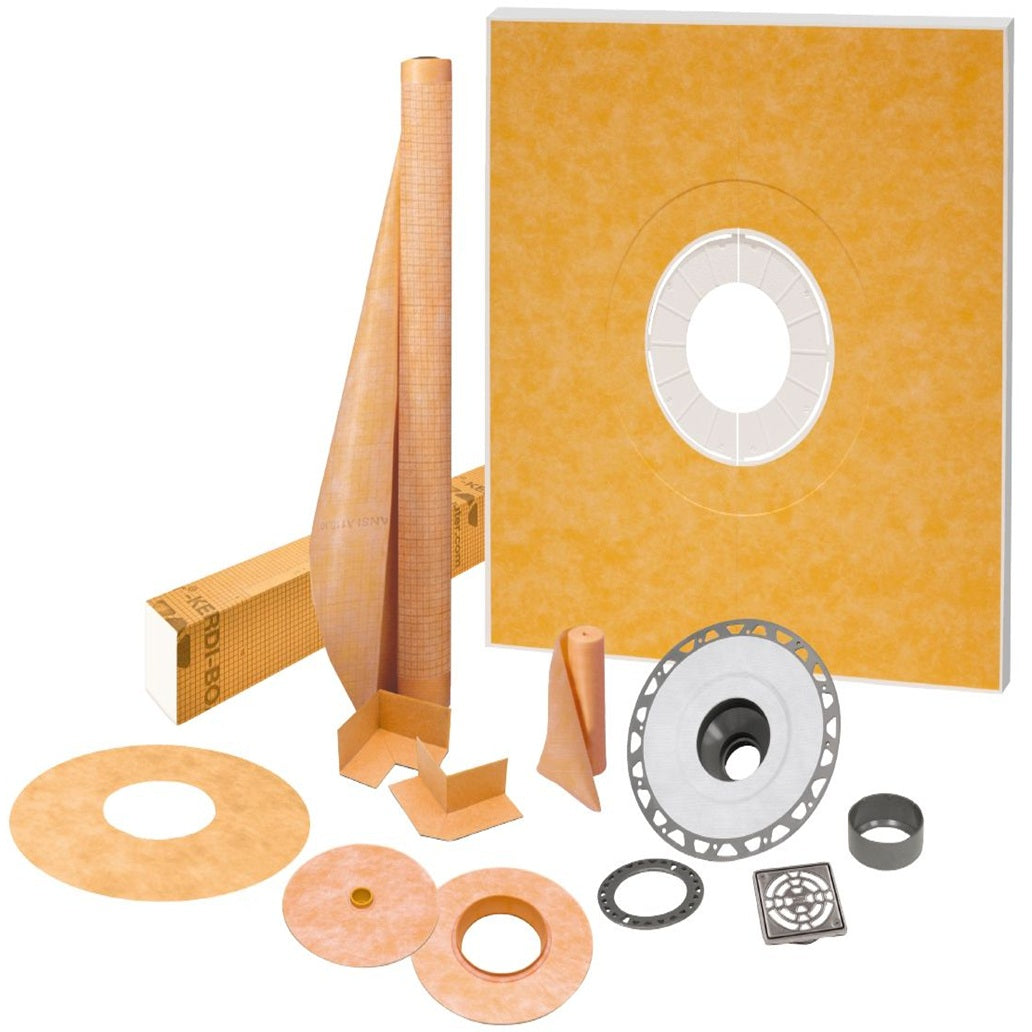
Do It Yourself Shower Remodel with the Schluter KERDI SHOWER KIT FLG
Renovating a bathroom can often seem daunting, especially when considering the complexities of constructing a tiled shower. However, with the Schluter KERDI-SHOWER-KIT-FLG, achieving a professional, watertight shower installation becomes both straightforward and cost-effective.
Comprehensive All-in-One Solution
The Schluter KERDI-SHOWER-KIT-FLG is a meticulously curated package that includes all necessary components to build a fully waterproof and vapor-tight shower assembly. This eliminates the need to source individual parts, ensuring compatibility and streamlining the installation process. The kit comprises:
-
Shower Tray and Curb: Prefabricated components that replace traditional mortar beds, simplifying installation and reducing labor time.
-
Waterproofing Membrane and Strips: Schluter KERDI membrane and accompanying strips ensure a watertight enclosure, protecting against mold and mildew.
-
Formed Corners, Pipe Seal, and Mixing Valve Seal: These accessories provide secure seals around vulnerable areas, enhancing the system's integrity.
-
KERDI-DRAIN with Integrated Bonding Flange and Stainless Steel Grate: A reliable drainage solution that integrates seamlessly with the waterproofing membrane.
By offering these components in a single kit, Schluter simplifies the purchasing process and ensures that all parts work cohesively, reducing the risk of installation errors.
Ease of Installation
Traditional shower installations often require constructing mortar beds, a process that demands precision and can be time-consuming. The Schluter KERDI-SHOWER-KIT-FLG's prefabricated shower tray and curb eliminate this step, allowing for quicker and more accurate installations. The components are designed to fit together seamlessly, making it feasible for both professionals and skilled DIY enthusiasts to achieve high-quality results.
Additionally, Schluter provides comprehensive resources, including detailed installation handbooks and instructional videos, to guide users through each step of the process. These materials are invaluable in ensuring a successful installation.
Cost-Effectiveness
By consolidating all necessary components into one package, the Schluter KERDI-SHOWER-KIT-FLG offers significant cost savings. Purchasing a comprehensive kit reduces the likelihood of missing or incompatible parts, minimizing unexpected expenses. Moreover, the time saved during installation translates to reduced labor costs, making it an economically sound choice for both contractors and homeowners.
The Schluter KERDI-SHOWER-KIT-FLG exemplifies how modern innovations can simplify home renovations. Its all-inclusive design, coupled with ease of installation and cost-saving benefits, makes it an ideal solution for creating durable, watertight tiled showers. Whether you're a professional contractor or a DIY enthusiast, this kit provides the tools and confidence needed to transform your bathroom efficiently and effectively.
- Billy Peska
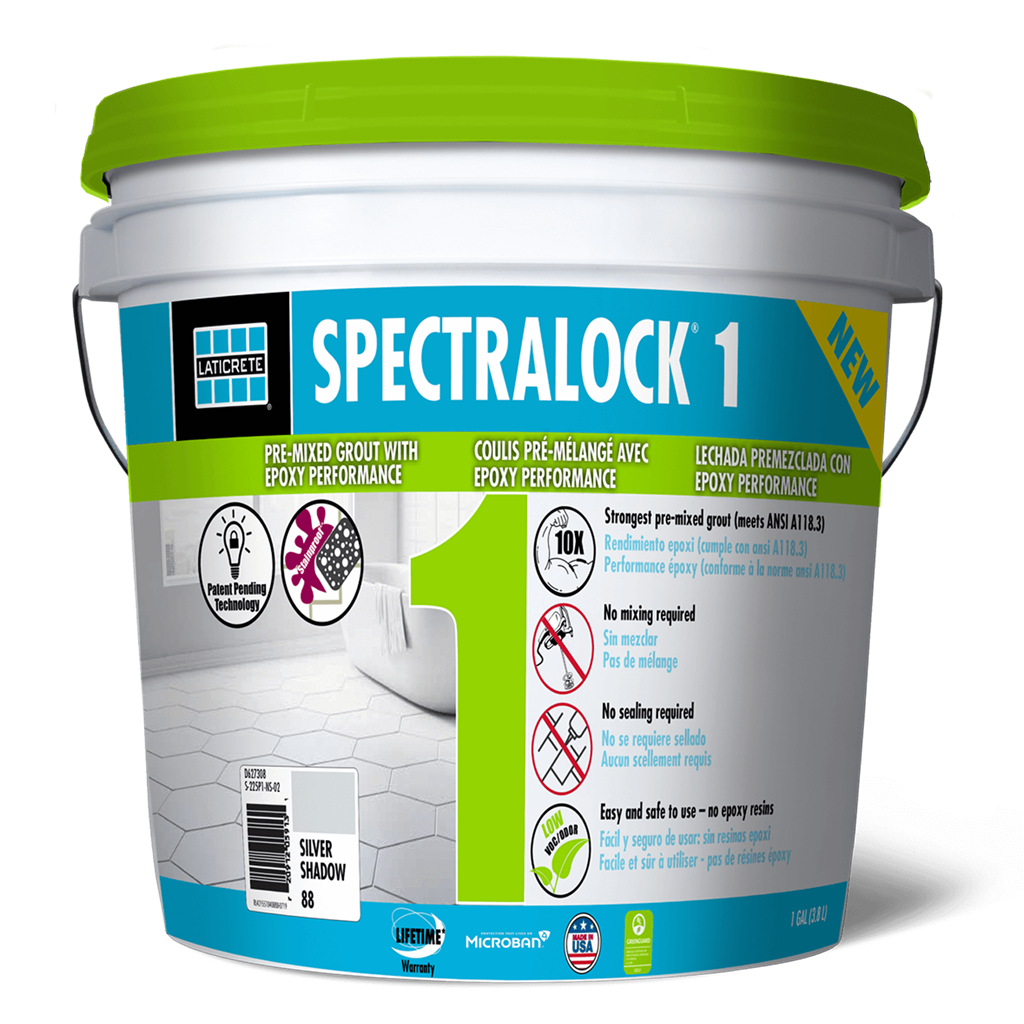
Laticrete Spectralock 1: The Ultimate Pre-Mixed Grout for Professionals and DIYers
When it comes to tiling projects, selecting the right grout is just as important as choosing the perfect tile. Whether you're a professional contractor tackling a large-scale renovation or a DIY enthusiast sprucing up your home, Laticrete Spectralock 1 Pre-Mixed Grout is the ideal solution. Combining ease of use, superior performance, and lasting durability, Spectralock 1 eliminates the common frustrations of traditional grout while delivering outstanding results.
What Is Laticrete Spectralock 1?
Laticrete Spectralock 1 is a pre-mixed, stain-proof, and waterproof grout designed for use in both residential and commercial settings. Unlike traditional cement-based grouts that require mixing with water or epoxy-based grouts that involve multiple components, Spectralock 1 is ready to use straight out of the bucket—saving time, reducing waste, and simplifying the installation process.
This grout is not only easy to apply but also provides the strength and performance of an epoxy grout without the complicated mixing process.
Why Spectralock 1 Is Perfect for Professionals
1. Saves Time on the Job Site
Time is money in the world of professional tile installation. Since Spectralock 1 is pre-mixed, there’s no need for measuring, mixing, or waiting for grout to set before application. This allows for faster installations, reducing labor costs and increasing job efficiency.
2. Superior Strength and Durability
Spectralock 1 offers the same high performance as traditional epoxy grouts, meaning it’s resistant to cracks, stains, and shrinkage. It can withstand heavy traffic, making it ideal for commercial applications, including restaurants, shopping malls, and hospitals.
3. Versatile Application Options
This grout is suitable for interior and exterior use and can be applied in wet and dry areas, including bathrooms, kitchens, pools, and showers. It’s also approved for both floor and wall tile installations, giving professionals the flexibility they need on diverse projects.
4. Stain and Chemical Resistance
For projects requiring high stain resistance—such as kitchen backsplashes and commercial kitchens—Spectralock 1 is 100% stain-proof and resistant to harsh cleaning chemicals, making maintenance effortless for property owners.
Why Homeowners Love Spectralock 1 for DIY Projects
1. Easy to Use – No Mixing Required!
One of the biggest barriers for DIYers is the complexity of traditional grout mixing. Spectralock 1 removes this challenge by offering a pre-mixed solution that is ready to use immediately. Simply open the bucket, apply the grout with a float, and clean up with water—no special tools or skills required.
2. Professional-Quality Results
Even without professional experience, homeowners can achieve flawless grout lines with Spectralock 1. The smooth consistency makes application easy, and because it's pre-mixed, it ensures consistent color throughout the entire installation—no risk of uneven color from improper mixing.
3. Low Maintenance and Long-Lasting
Unlike traditional grout that may require sealing over time, Spectralock 1 is already sealed and fully waterproof. That means homeowners don’t need to worry about reapplying sealers or dealing with mold and mildew buildup in wet areas like showers.
4. Wide Range of Colors
Spectralock 1 is available in a variety of colors, making it easy to match any tile design. Whether you're going for a classic look or a modern aesthetic, there’s a shade to complement your vision.
5. Perfect for Small or Large DIY Projects
Because it comes in various bucket sizes, homeowners can choose the right amount of grout without waste. Whether you’re tackling a small bathroom update or a full kitchen remodel, you won’t have to deal with leftover bags of unused grout.
Final Thoughts: The Best Pre-Mixed Grout for Any Project
Whether you're a seasoned tile contractor looking for a faster, more efficient grout or a homeowner tackling a DIY renovation, Laticrete Spectralock 1 is the perfect choice. Its pre-mixed convenience, professional-grade durability, and beautiful finish make it an unbeatable option for any tiling job.
Say goodbye to messy mixing and inconsistent grout results—Spectralock 1 ensures a hassle-free installation and long-lasting beauty for any space.
Ready to start your project? CLICK HERE to get your hands on Spectralock 1 today!
- Billy Peska
From the Pro Desk: Reimagining Outdoor Spaces with Daltile
Daltile's Newest Trends: Reimagining Outdoor Spaces with Porcelain Tile
When it comes to transforming outdoor spaces, homeowners and designers alike are turning to a durable and stylish solution: porcelain tile. With its impressive strength, weather resistance, and aesthetic versatility, porcelain tile is redefining the way we think about patios, pool decks, walkways, and other outdoor areas. As a leader in tile innovation, Daltile continues to push the boundaries with new trends that enhance both form and function in outdoor design.
The Benefits of Porcelain Tile for Outdoor Spaces
1. Durability and Weather Resistance
Porcelain tile is known for its exceptional durability, making it a top choice for outdoor use. Unlike natural stone or concrete, porcelain is highly resistant to cracking, fading, and staining. It can withstand extreme temperature fluctuations, from scorching summers to freezing winters, without losing its integrity.
2. Low Maintenance
One of the biggest advantages of porcelain tile is its minimal maintenance requirements. Unlike wood decking that requires staining or sealing, porcelain tile is virtually maintenance-free. It resists mold, mildew, and water absorption, ensuring a long-lasting and pristine appearance with simple occasional cleaning.
3. Aesthetic Versatility
Available in a vast array of colors, textures, and patterns, porcelain tile allows for endless design possibilities. Whether you prefer the look of natural stone, wood, or concrete, there is a Daltile porcelain tile option that can achieve the aesthetic you desire. This makes it easy to create a seamless transition between indoor and outdoor spaces.
4. Slip Resistance and Safety
Outdoor porcelain tiles from Daltile are designed with slip-resistant surfaces, making them a safe choice for high-traffic areas, pool surrounds, and wet environments. This feature enhances both comfort and safety, providing peace of mind for families and guests.
Daltile’s Latest Outdoor Tile Trends
-
Natural Aesthetic with Advanced Technology – Daltile’s newest collections feature hyper-realistic stone and wood looks, providing the beauty of natural materials with the benefits of porcelain.
-
Large-Format Tiles – Expanding design possibilities, oversized porcelain slabs create a seamless and sophisticated look for patios and pool areas.
-
Outdoor Porcelain Pavers – Thicker and more durable than traditional porcelain tiles, Daltile’s outdoor pavers are ideal for driveways, walkways, and elevated outdoor living spaces.
-
Textured Finishes for Added Grip – Incorporating slip-resistant textures, Daltile ensures safety without compromising style.
-
Sustainable and Eco-Friendly Designs – Many of Daltile’s outdoor tile collections prioritize sustainable manufacturing, making them a responsible choice for eco-conscious homeowners.
Creative Applications for Daltile’s Outdoor Porcelain Tiles
-
Patios and Terraces – Create a stylish and functional outdoor retreat with large-format tiles that mimic natural materials like stone or wood.
-
Pool Decks – Enhance the beauty and safety of poolside areas with slip-resistant porcelain tiles that stay cool underfoot.
-
Walkways and Driveways – Use durable porcelain pavers to add a sleek, modern touch to pathways and driveways.
-
Outdoor Kitchens and Dining Areas – Elevate al fresco dining with easy-to-clean and stain-resistant porcelain countertops and flooring.
Final Thoughts
Daltile continues to revolutionize outdoor living with its innovative porcelain tile offerings. Whether you're updating an existing space or designing a new outdoor oasis, Daltile’s latest trends provide a stylish, long-lasting solution that can withstand the elements while enhancing the overall appeal of your home.
Are you ready to transform your outdoor space? Explore Daltile’s newest outdoor porcelain tile collections and reimagine the great outdoors in style!
- Lance Charnock
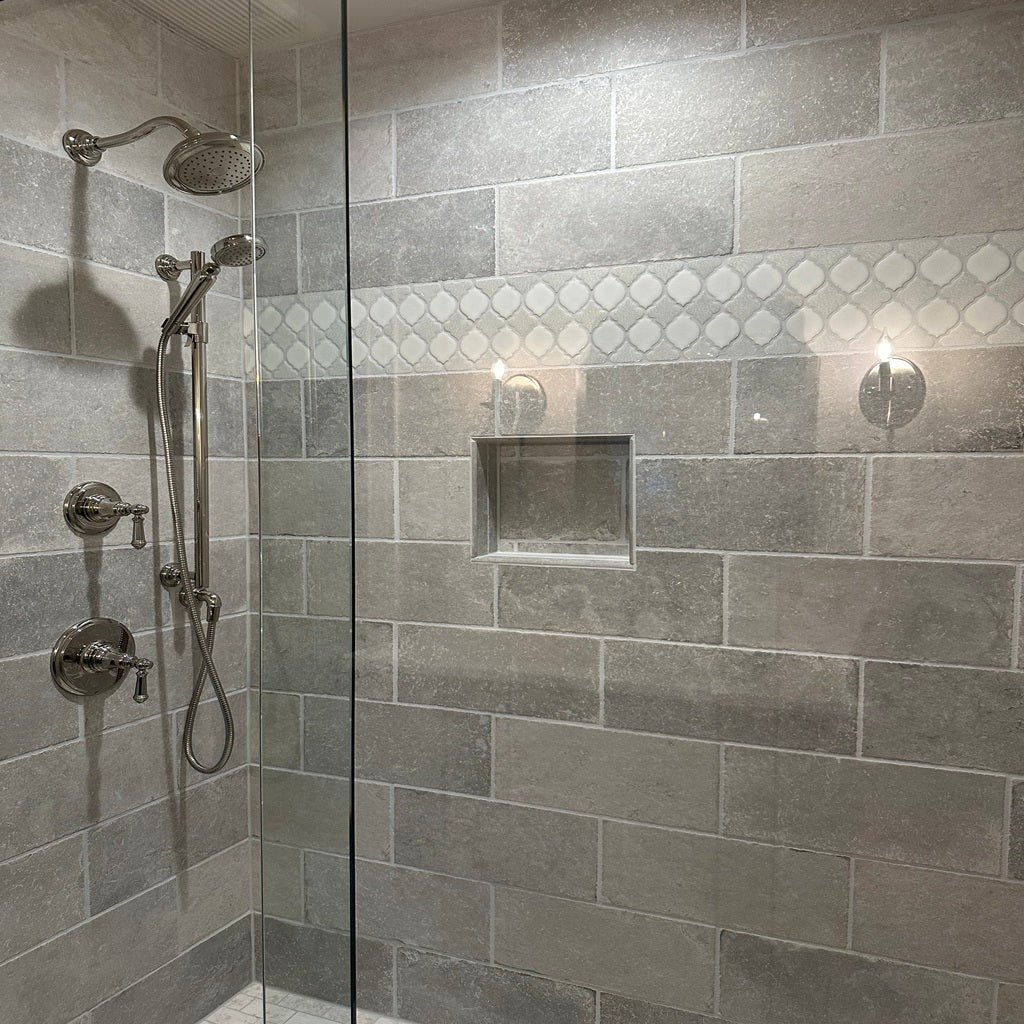
Customer Spotlight: A Stunning Bathroom Transformation with Virginia Tile Pietra Di Ostuni
At Flooring Market, we love seeing how our customers bring their renovation dreams to life! One of our recent projects features a breathtaking bathroom transformation using Virginia Tile Pietra Di Ostuni—a choice that delivers timeless beauty with a touch of modern elegance.
Our customer knew exactly what she wanted for this space. Having used Pietra Di Ostuni in a previous project, she confidently selected it again—favoring its sophisticated look over even natural marble.
"The selected tile is a favorite of mine! I’ve used it in a previous renovation project, it honestly was one of my favorites over marble! Working with Flooring Market was a great and seamless experience and was a huge savings! Billy was prompt to answer any question or concerns I had! Thank you for helping us complete this project!" - says Billie Walkenbach
This stunning tile brings a refined, natural stone aesthetic to any bathroom, pairing well with a variety of styles and finishes. Whether you’re going for a spa-like retreat or a sleek modern look, Pietra Di Ostuni is a perfect choice.
Looking to transform your own space? Explore our collection and experience the same seamless shopping experience that made this renovation a success!
You can visit the Virginia Tile Pietra Di Ostuni Collection by clicking this link.



Have a project you'd like to share? We'd love to feature your work! Email us at ProServices@FlooringMarket.com
- Billy Peska





